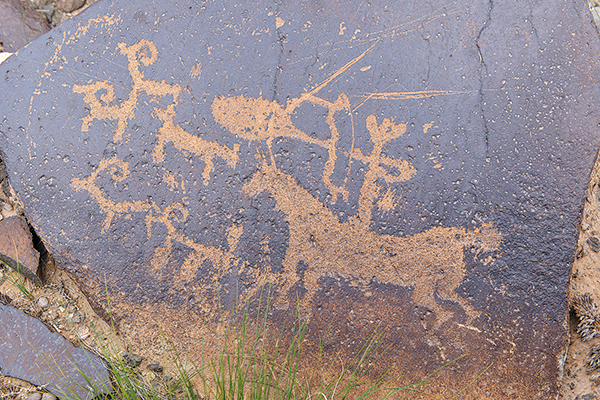Writing on the wall
The art carved into the cliffs and boulders of the Mandela Mountains and surrounding areas tell human stories set in stone, Wang Qian and Yuan Hui report in Hohhot.
By Wang Qian and Yuan Hui | China Daily | Updated: 2024-01-29 10:31

"When I took off my trousers, I found that my whole leg was green and swollen. I went to the doctor who said I was badly hurt and that, without treatment, my leg might have required amputation," Fan remembers.
He'd also been injured the summer of the previous year when he broke his sternum after falling down a cliff while trying to photograph some of the petroglyphs.
In addition to the Mandela Mountains, Fan has surveyed most corners of the 73,000-square-kilometer Alshaa Right Banner and has registered 567 immovable cultural relics sites, including 81 rock art sites.
In 2010, an international seminar on the rock art site in the Mandela Mountains was held in the Alshaa Right Banner to strengthen communication with overseas scholars.
Now, Fan is setting up a digital archive to support rock art conservation. It consists of information, such as the locations, dates, sizes and 3D images of more than 30,000 petroglyphs.
"Rock art is a treasure that can be shared by all human beings," he says.
"It's our duty to protect it so that more people can appreciate their beauty and value, and share China's rock art with the world."
























